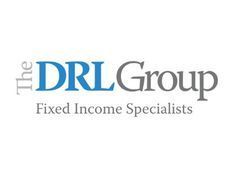
While it is common to hear about daily fluctuations in the various market exchanges, such as NASDAQ or DOW, few investors are aware of a fluid exchange taking place daily between fixed-income broker-dealer trading desks and their competitors. This exchange is an over-the-counter marketplace where bond dealers come together via the “broker’s broker platform” to buy and sell securities with one another.
The broker’s broker (BB) is an intermediary/negotiator for buyers and sellers of municipal (muni) bonds in the secondary marketplace. Like a real estate broker, the BB does not own any securities but acts as an agent, representing buyers and sellers of muni bonds. These agents help facilitate the trading flow in the $4 trillion municipal bond market.
This platform consists of firms that compete for bonds and clients, and the BB acts as a facilitator between the firms so dealers can buy what they do not have or sell what they do not want. The parties involved in the trades remain anonymous, but each must be a registered broker-dealer to participate.
So, why should your financial advisor’s Broker Dealer use a BB? And how does using a BB affect the individual investor?
To answer these questions, you must understand that the buying and selling of municipal bonds is done in an over-the-counter marketplace. In the past, players would wait for the morning delivery of a publication called “The Blue List.” This publication listed municipal offerings by state and included the selling firm’s name. Because anonymity is a valuable negotiating tool, a dealer would enlist a BB to entertain a bid for the bond of their liking. Thus, the negotiating began, and if all parties agreed, a trade occurred. Neither buyer nor seller knew who was on the other side of the transaction, and the BB worked with each firm to facilitate the transaction.
These firms across the U.S. would interact with the BB by phone numerous times a day, trading bonds. Today, dealers work with more sophisticated electronic trading platforms called electronic communication networks (ECNs). These systems allow dealers to advertise offerings, execute trades, and buy and sell on the auction platform — all without ever picking up the phone. This method has added greater visibility to muni products advertised in the marketplace while saving valuable time.
An attempt has been made to move municipal trading to a more generic valuing system, but that hasn’t proven easy because of the unique differences among municipalities and their financial circumstances. Nevertheless, the electronic trading network (ETN) has come a long way and offers a considerable efficiency level.
The advantage of having your financial advisor’s Broker Dealer firm work through a BB can be beneficial in multiple ways. First, if your financial advisor (FA) is looking for a specific type of bond for you and does not have it in inventory, they must go into the marketplace to source it. In this instance, enlisting a BB to find that specific bond is advantageous to the dealer. Dealers always seek to give their clients as close to what they request as possible, and the BB can show you bonds that might fit your clients’ requirements.
This situation can also work in reverse. If a client has a bond their FA firm would not usually purchase, this dealer can go to a BB and get a bid for these bonds from another dealer who traffics in that type of paper. In these cases, the dealer satisfies the investment objectives. Using a BB can also assure you that when you sell bonds, the price you are quoted represents what the marketplace pays that day, not just the in-house bid from your FA.
When selling your securities, the BB provides auction-like services by asking marketplace participants to bid on your bonds. This format assures the seller that their bonds are shown to dealers all over the U.S. If the price is right, a trade ensues. An attractive block of bonds can receive upwards of 10 bids, which would save you from calling more than 10 firms yourself to ask for a value on your securities. BBs provide an assurance that the bid price you receive is not just representative of your FA firm’s price level but that of the entire marketplace on that day.
Dealers who actively participate in daily bond auctions have an opportunity to bring value to their clients by purchasing bonds on the “bid side” of the market instead of the “offering side.” This method is beneficial to the individual investor because it ensures the best execution — and higher returns.
As with all investing, knowledge is power. Knowing more about the functioning of the muni marketplace is not only advantageous but essential to achieving your investment objectives. Discussing these issues with your fixed-income advisor is always time well spent.
At The DRL Group, we specialize in helping high-net-worth investors maximize their tax-free returns by proactively maintaining their custom bond portfolios through all market conditions. For more information on how we can help, please visit us at Yield-Day.com or contact one of our specialists at 281-398-8600.
The information provided here is not investment, tax or financial advice. You should consult with a licensed professional for advice concerning your specific situation.






